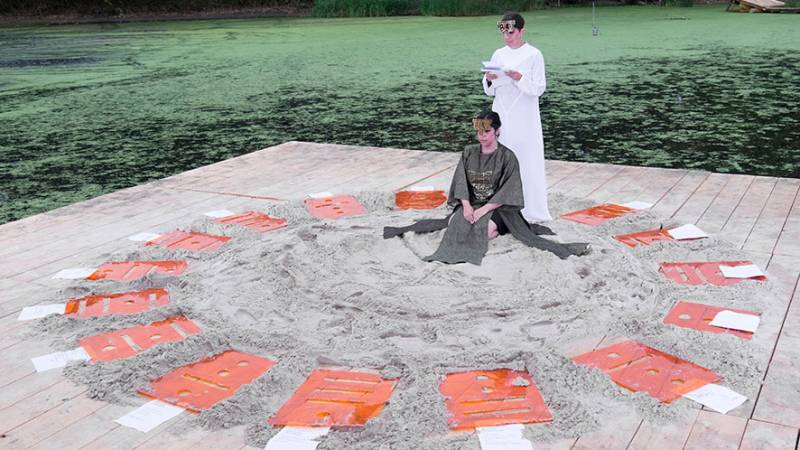Iranian-Canadian artist Shirin Fahimi, scheduled to perform on Friday at San Francisco’s CounterPulse, was denied entry to the United States on Tuesday. Her two-person performance with Morehshin Allahyari will continue, says co-presenting arts nonprofit Southern Exposure, as “a resilient, unbending adaptation of the original piece.”
Fahimi was scheduled to take a direct flight from Toronto to San Francisco when she was stopped by Toronto-based U.S. border officials, questioned and not allowed to board her flight. Fahimi, who was born in Iran, is a Canadian citizen and carries a Canadian passport. Canadian citizens do not require visas to visit the U.S. and Fahimi has traveled here many times since 2018 without issue, a joint announcement from Counterpulse and Southern Exposure explained.
Her performance with New York-based Allahyari, titled Breaching Towards Other Futures, sources material from Middle Eastern mythology and is staged in conjunction with Southern Exposure’s ongoing exhibition Where do you want ghosts to reside?
Fahimi posted about the events on social media, writing, “Sharing this experience in case someone else has a similar situation.” She detailed the process of going through passport check and getting called into a security room filled with monitors showing her own image. During questioning by a U.S. official, Fahimi says she was asked if she is Muslim, why she immigrated to Canada, if she was happy with the Iranian government and why her husband’s family name is so long.
“Have you ever been asked what is your religion when crossing the border?” she wrote on Instagram. “Have you ever needed to explain your spiritual existence for your trip to the U.S.?”


